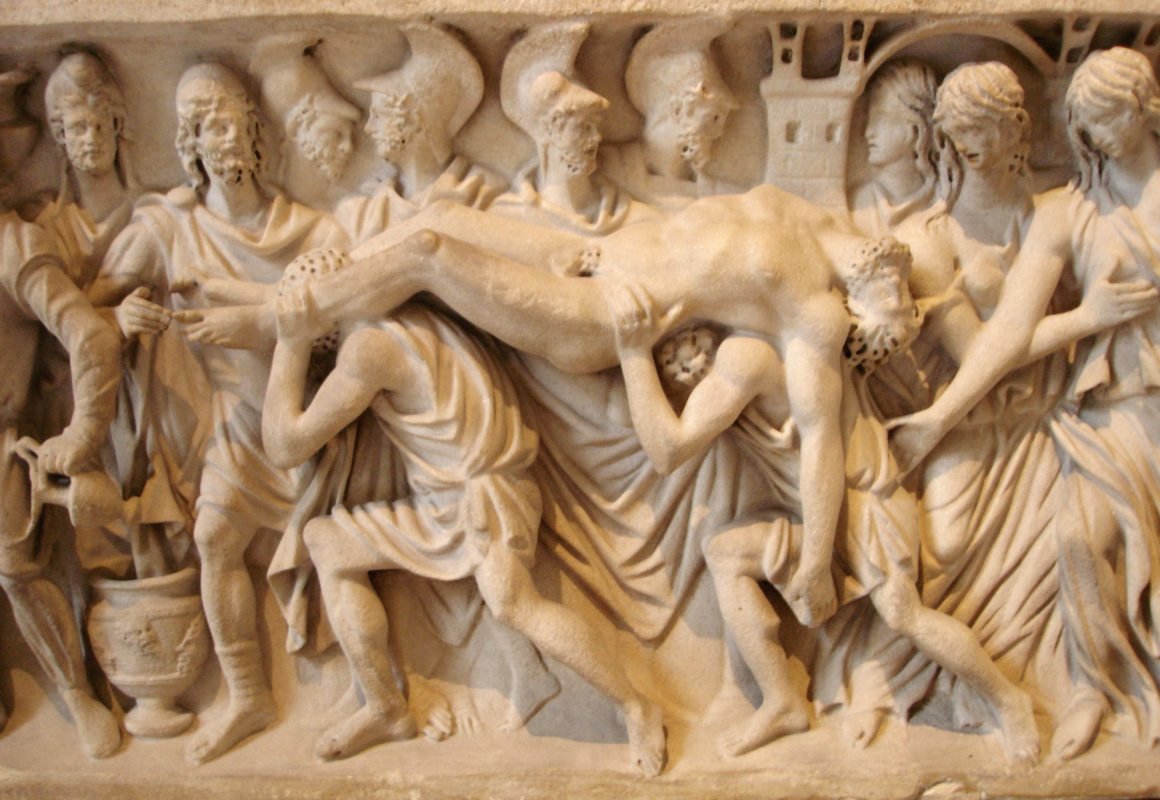The subject of the poem is Achilles' rage - first at Agamemnon for commandeering his prize Briseis, and then at Hector for killing his best friend Patroclus. Hundreds of people die in the most gruesome, graphic ways all throughout the story. Hector's death was the climax of the poem.
Yet the narrator never seems to glory over these deaths. The individual heroes do, true, as well they should. It is an altogether human response to glory over a victory, even a ghastly one which ends another man's life. Homer however, doesn't glory. As I've said in my last post (which was quite a while ago), he doesn't paint a clear-cut picture of good and bad. Each combatant is simply a human being swept up in war. If circumstances had been different, he could easily have been on the other side.
And this is the aspect that the last part of the poem, Achilles and Priam conveys so well. When Priam begs for the body of his son, Achilles' rage finally dissolves. He simply sees an old man wailing over the loss of his son and heir, and Achilles knows his own old father will soon suffer in the same way. Achilles at last reestablishes a human connection, and is not raging away like a besmirched god.
The last pages of the Iliad describe Hector's burial. It is truly a pathetic scene, and it precludes Troy's fate to be destroyed. There is not one uplifting moment in this part of the story. Even the dissolution of Achilles' rage is because of a pathetic old man who has lost all reason to live. Whereas in the previous chapter (Funeral Games for Patroclus) there were many lighthearted and fun moments (the men of the army were in fact playing games and enjoying themselves after all the horrors they had suffered up to that point), the ending of the story is all gloom and doom. The reader is imparted with a never-ending sense of loss of life and waste of human potential, and all because of this, this maddening war. One would think that nothing was truly gained by the Greek expedition to Troy, and in fact we find in the Odyssey that many of the heroes do not return home, thus wasting the treasures they had won and their own lives, becoming just as much losers in the affair as Hector.
There is no other part of the story, or in fact, no other media related to warfare, that imparts such a devastating sense of loss and the hopeless waste that war brings than the conclusion of the Iliad. It is in fact why some have labelled Homer a pacifist. It is the best anti-war propaganda in the world.
Marcus Luttrell of Lone Survivor fame has commented that "there are no right or wrong decisions on the battlefield, it's just war."
In a way, he's correct, because in war, everyone loses in some way. No side goes out unscathed. As usual, the question to ask was whether the war was truly necessary, and in the case of the Trojan War, the answer is an emphatic "no."
 |
| Hector's body brought back to Troy. |

Warfare is a fascinating subject. Despite the dubious morality of using violence to achieve personal or political aims. It remains that conflict has been used to do just that throughout recorded history.
ReplyDeleteYour article is very well done, a good read.
Warfare is a fascinating subject. Despite the dubious morality of using violence to achieve personal or political aims. It remains that conflict has been used to do just that throughout recorded history.
ReplyDeleteYour article is very well done, a good read.